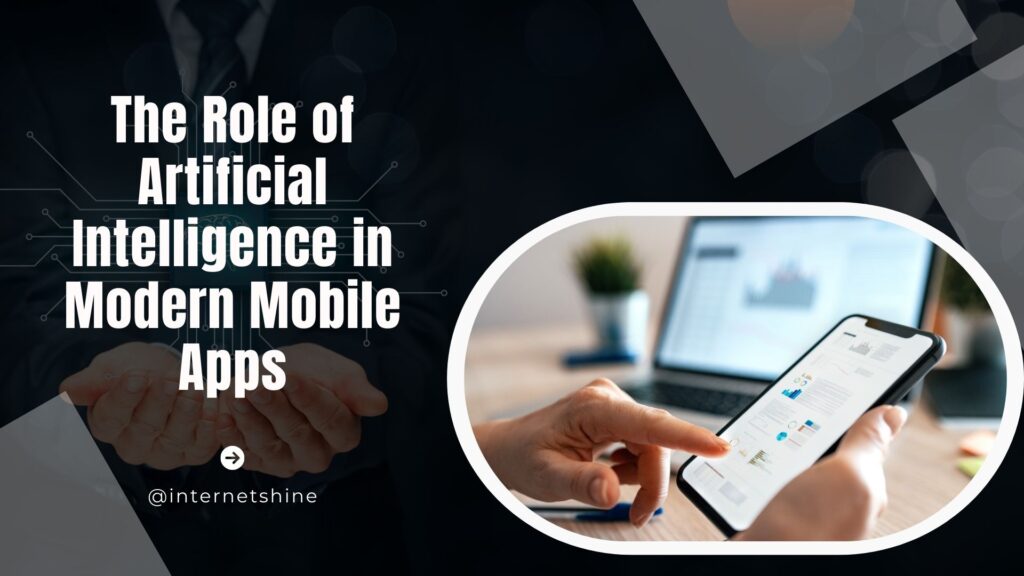Artificial Intelligence (AI) has become a cornerstone of innovation in the tech world, with its impact being most profoundly felt in mobile app development. The integration of AI into mobile apps has transformed the way users interact with technology, offering personalized experiences, automating tasks, and providing intelligent solutions that were once thought to be the stuff of science fiction. This blog explores the role of AI in modern mobile apps, shedding light on its benefits, challenges, and future potential.
1. Enhancing User Experience through Personalization
One of the most significant contributions of AI in mobile apps is the ability to provide personalized experiences. AI algorithms analyze user behavior, preferences, and interactions to tailor content and recommendations. For instance, streaming services like Netflix and Spotify use AI to suggest movies, shows, and music based on individual user preferences. This level of personalization not only keeps users engaged but also builds brand loyalty by making the app more relevant to each user.
2. Intelligent Automation and Efficiency
AI has revolutionized how mobile apps handle tasks that once required manual input. Features like chatbots, virtual assistants, and voice recognition systems are now commonplace in mobile apps, thanks to AI. These tools allow for seamless communication between users and the app, providing instant responses and solutions. For example, AI-powered chatbots can handle customer service inquiries, answer frequently asked questions, and even troubleshoot basic issues, freeing up human resources for more complex tasks.
3. Predictive Analytics and Decision Making
AI-driven predictive analytics play a crucial role in modern mobile apps, especially in sectors like e-commerce, healthcare, and finance. By analyzing vast amounts of data, AI can predict user behavior, market trends, and potential risks. For example, AI can help e-commerce apps forecast demand for certain products, enabling businesses to manage inventory more efficiently. In healthcare, AI can predict patient needs, suggest treatment plans, and even identify potential health risks based on patient data.
4. Enhanced Security and Fraud Detection
Security is a paramount concern for mobile app users, especially with the increasing prevalence of online transactions. AI has significantly improved the security of mobile apps by providing advanced fraud detection mechanisms. AI algorithms can analyze user patterns and detect anomalies that may indicate fraudulent activities. For instance, AI can flag suspicious transactions or unauthorized access attempts, allowing for immediate action to be taken. This not only protects users but also enhances the trustworthiness of the app.
5. Challenges in AI Integration
While the benefits of AI in mobile apps are numerous, there are also challenges to its integration. Developing AI-driven features requires a significant investment in time, resources, and expertise. Additionally, there is the challenge of data privacy and security. AI systems rely heavily on data, and ensuring that this data is collected, stored, and used responsibly is crucial. Developers must also address the potential for bias in AI algorithms, which can lead to unfair or inaccurate outcomes.
6. The Future of AI in Mobile Apps
The future of AI in mobile apps is incredibly promising. As AI technology continues to evolve, we can expect even more sophisticated and intuitive mobile apps. Innovations like augmented reality (AR) combined with AI could revolutionize sectors such as gaming, education, and retail. Moreover, as AI becomes more accessible, even small and medium-sized businesses will be able to leverage its power to create smarter, more efficient mobile apps.
Conclusion
AI has undeniably transformed the landscape of mobile app development, offering unparalleled opportunities for innovation and growth. From personalization to security, AI’s role in modern mobile apps is pivotal in enhancing user experiences and driving business success. However, developers must navigate the challenges of AI integration carefully, ensuring that they harness its power responsibly and ethically. As we look to the future, it’s clear that AI will continue to shape the mobile apps of tomorrow, bringing us closer to a world where technology is more intelligent, intuitive, and indispensable than ever before.
